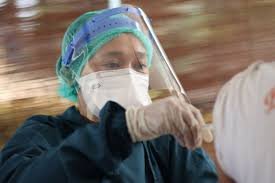Last Updated on January 2, 2026 by Rida Gul
Table of Contents
Introduction to Advanced Nursing Education
Advanced nursing education enhances healthcare quality and ensures excellent patient outcomes. It encompasses a range of programs that arm nurses with the necessary skills and knowledge to manage complex clinical situations effectively. Acknowledging the dynamic nature of the healthcare environment, institutions now offer multifaceted degrees to cultivate nurse leaders capable of driving significant improvements in patient care. These programs are designed to enrich nurses’ professional competence and expand their capacity to adapt to the evolving demands of healthcare delivery.
Advancements in Nursing Education
The shift toward evidence-based education in nursing has been profound, offering a more rigorous framework through which nurses can assess and apply clinically relevant data. The crux of this approach lies in leveraging high-quality, current research to inform nursing practices and policies. Integrating advanced technologies within nursing education like MSN nursing education—ranging from high-fidelity simulation tools to data management systems—has also been pivotal. Such technologies enhance the learning experience while mimicking the realities of healthcare settings, effectively bridging the gap between theory and practice. Collaborative efforts across various healthcare disciplines within academic settings encourage a more holistic view of patient care, enriching nursing education’s scope and impact.
The Correlation Between Nursing Education and Patient Care
There is a significant and measurable connection between the level of nursing education and the standard of patient care. Studies indicate that nurses prepared at the baccalaureate level and above are linked to lower patient mortality rates, fewer complications, and reduced medical errors. This strong link underscores the pressing need for educational pathways that provide baseline qualifications and encourage ongoing professional development and specialization within nursing careers. As such, advanced nursing education becomes vital in elevating healthcare facilities’ overall quality of care.
Challenges Faced by Nursing Educators
Nursing educators must navigate various challenges as they prepare the next generation of nurses for the complexities of modern health care. Educators must constantly update curricula to keep pace with the rapid medical science and technology changes, ensuring that the content is current and relevant. Moreover, there is an increasing need to instill critical thinking and problem-solving skills in nursing students—indispensable traits in health care’s fast-paced and often unpredictable realm. Compounding these academic challenges is a persistent shortage of nursing instructors, which hampers the ability to educate sufficient nurses to meet the growing demands of an aging population.
Innovations in Teaching Methodologies
Innovations in nursing education are centered around enhancing the competence and readiness of nursing students for the realities of patient care. Simulation-based learning has become invaluable, providing safe, realistic environments where students can hone their skills without risk to patients. These simulated settings allow for repetitive practice and immediate feedback, which is critical to skill acquisition and confidence-building. Additionally, the role of clinical rotations must be balanced; real patient care experiences are integral to translating theoretical knowledge into proficient practice.
Bridging the Gap: From Classroom to Clinical Settings
Transitioning from nursing education to clinical practice is a crucial phase in a nurse’s career. Bridging this gap effectively demands an education emphasizing theoretical knowledge and practical skills. This can be achieved through comprehensive academic programs, extensive clinical rotations, and a supportive mentoring framework. Such a framework would allow experienced nurses to guide novices in delivering care, smoothing their segue into the professional realm. Equally important is lifelong learning and continuous professional development, which ensures that nurses maintain and refine their clinical abilities to align with evolving healthcare demands.
Addressing the Demand for Specialized Nursing Roles
The landscape of nursing is witnessing a growing call for advanced and specialized nursing roles. There is a particular demand for nurse educators who can pass on their expertise to budding nursing professionals. Other specializations, such as nurse anesthetists, geriatric nurses, and public health nurses, are pivotal in catering to specific care delivery aspects within the health care system. Specialized roles allow nurses to employ their skills more deeply in their respective domains, leading to improved health outcomes and a more robust healthcare infrastructure.
Conclusion
The steadfast link between nursing education and the caliber of patient outcomes emphasizes the critical role that advanced nursing education plays in the health care system. By championing values such as lifelong learning, adaptability, and specialization, nursing professionals can be more thoroughly prepared to meet the intricate health demands of patients. Ultimately, an investment in the continual development of nursing knowledge and skills is an investment in the future of health care—its benefits resonating through improved patient care quality and enhanced health care delivery outcomes.
Apart from this, if you are interested to know more about Exploring the Variety of Carrier Oils for Beauty Regimens then visit our Health category.























